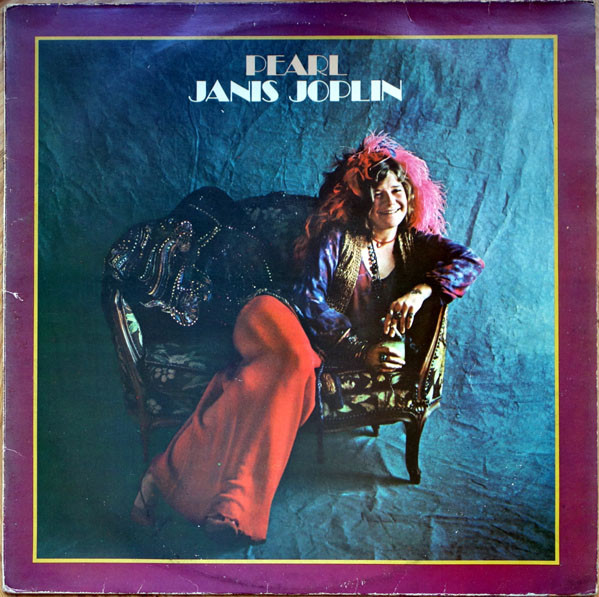
Pearl (1971)
Excerpts¹
My idea of how to formulate reasonable life-purposes is at such profound odds with that of those around me. My double-mind must stem at least partly from the fact that, while I am, at the moment, a committed antinatalist, I am not a misanthrope. I like life, and people somwhat, and fully intend to take part in it. To isolate, to “devote his life to morbid self-attention … [s]omeone should become a person like other people” is out of the question for the neurotic of the introverted, obsessional sort. Part the reason I’ve taken so strongly to Benatar is undoubtedly political: the constitution to which I’m beholden codifies family as the “natural and fundamental unit of society and the necessary basis of social order, and shall enjoy the recognition and protection of the State”: a ghastly piece of draconian dogma, in my view, that’s been given a pro-natal spin by white-wigged men and women of law. […] There’s something rather bleak about Benatar’s worldview. He is a cold, intensely analytical misanthrope, verging on nihilist. Do you guys know there’s no pictures of him online? None. Truly incredible for a thinker of his renown. […] But, argumentum ad passiones aside, speculations about what wellbeing awaits a potential life can ever override what an imposition the sheer fact of existence is to a fresh life. These are the theodical sidetracks. Ideal environment or not, obscene wealth or abject poverty, we are all hardwired above all else for survival. Coming into existence isn’t an imposition just for that reason. Our collective predicament is one into which we’re forcibly flung and from which extrication is not possible without disastrously upsetting delicate social structure—strructures with a superpersonal if not eternal grip. This is what I hope to introduce as the reconstructed, secular notion of original sin. If “we somehow knew for sure that by a particular couple giving birth to a baby it would give us a cure for cancer,” would we also have some way of knowing, say, what their future, adult feelings would be of having been the vessel of that contribution—you know, ‘heavy is the head’ and all that? Consequentialism, of which I’m a cautious proponent, seems to win out here. […] The American + first-worldian commitment to ordaining the individual as the basis of all civics is something, I dare add above all other, to be envied. […] Needless to say, I fully buy into Benatar’s asymmetry. The imposition I call attention to can be seen, too, in the stark difference between society’s general attitude to bringing a life into existence adversus a deliberate choice later taken by that life to opt out. I feel shy about poking at the conflicting thought-experiments put forth … though I do find them interesting. I agree, however, that if it could be somehow shown to me of my yet unconceived child that in its lifetime it would have to endure only the suffering of a single insect bite, I would have much reason to be relieved. But … there are epistemic problems with granting such a hypothetical—involving, for starters, the semantics and phenomenology of suffering. And the question sneaks up now of how such knowledge relates to the other hypothetical from 22/8 about the future possibility of accurate consciousness measurements. That suffering and wellbeing are linguistically and (/therefore?) morally exclusive is also not obvious to me. On the contrary, and to Perry’s point, it seems to me more intuitively obvious that preventing bad is more moral than (if at all ethically unarithmetizable with) causing good. [Benatar]’s project is not (exclusively?) to stigmatize sentience and its manufacturers, but rather to formally illustrate just how cavalier and profound an imposition its willful reproduction is on offspring in this here terrestrial context. […] I grant you this inevitability. Our drives reign supreme anyway, so said Freud, and the other enlightenment materialists. Still, if you grant that this indeed is a sad circus, your position sounds to me like saying, forgive my flippancy, that since the climate apocalypse is inevitable (if you believe Toby from The Office, which I do), refraining from littering/emitting ozone-killing fumes/deforesting/etc would, what, “lessen the quality of universal experience”? […] Not at all. I feel like we’re getting to the festering crevices of this thing. But you can’t happy-fy the circus by bringing in more clowns: remember, it’s a sad circus, if you’re still granting the Benatarian (Benatarist?) assumption. … [T]he only cure is omnicide. Whether … slow or instantaneous as Leon suggested, I’m don’t yet know. I’m not sure what Benatar ultimately prescribes, nor whether I even go with him all the way there either, if that’s where he goes. I’ll have to read him more; his published fonts are large and lines narrow which is encouraging. […] Once you arithmetize suffering like that, it’s not hard to compare scenarios. It’s when you start grounding things in a concrete context that you start getting into the weeds. […] Can our own assessments about where our wellbeing indices lie moment-to-moment ever be wrong? (Louis CK has a joke about this, the one about a guy in the crappy car with a paper window.) Perry’s talk of memory is also relevant to Sam’s (Bloom’s?) ideas of the experiencing vs the remembered self. […] A universe empty of experience is morally preferable to one with only two conscious occupants, one experiencing maximal wellbeing and the other maximal suffering; though this might be trying to both have my cake and eat it given how increasingly hard I’m finding it to grant this mathematizing of the quality of experience: all this talk of an insect bite being precisely as bad as a post-jog glass of water is good. Whatver the case, these—the suffering-asymmetry and narcissism arguments by Benatar from which I derive the imposition one—are my personal a priori intutions, and, as I see it, adequate charges against the pronatalist.
SOURCES
1. Mugo, A. N. (2023). Discord chats.